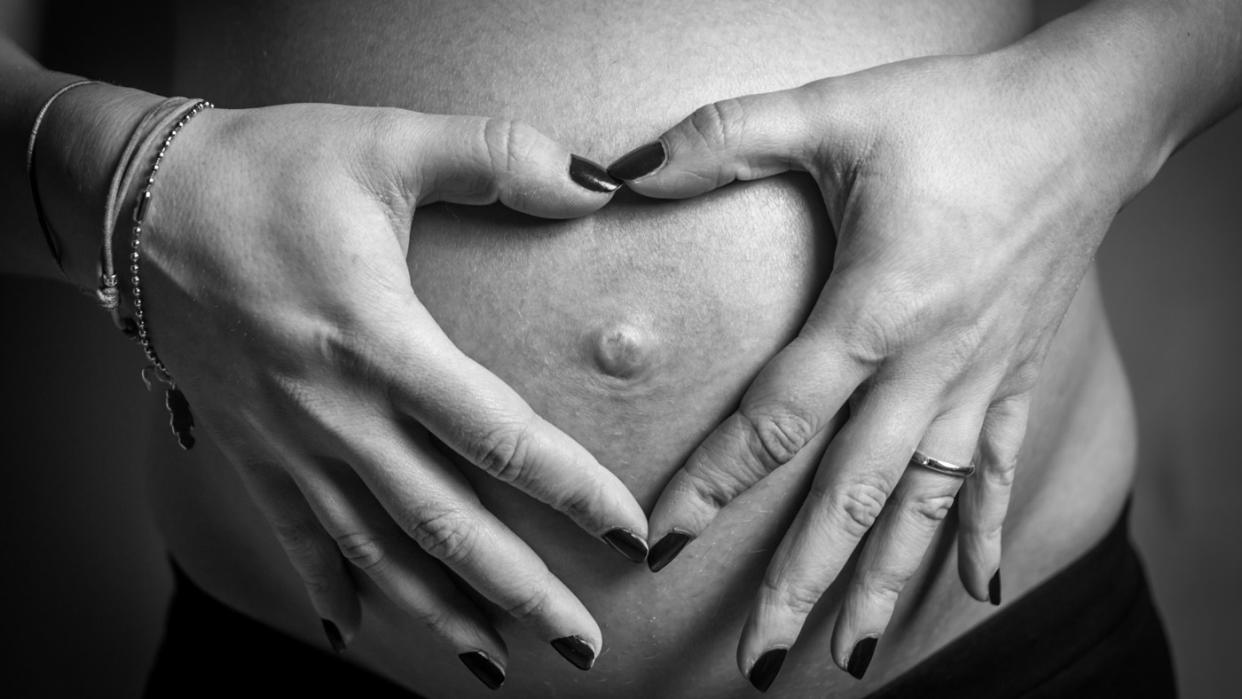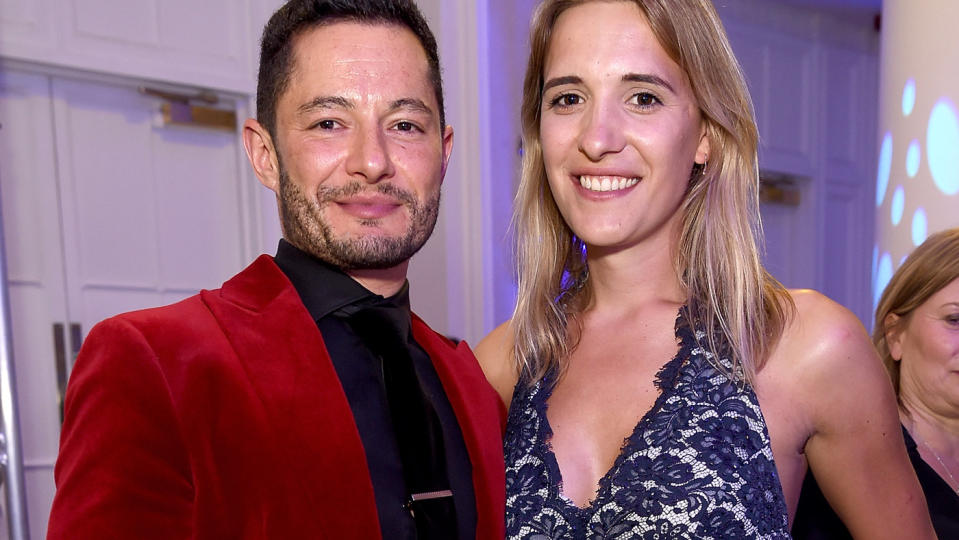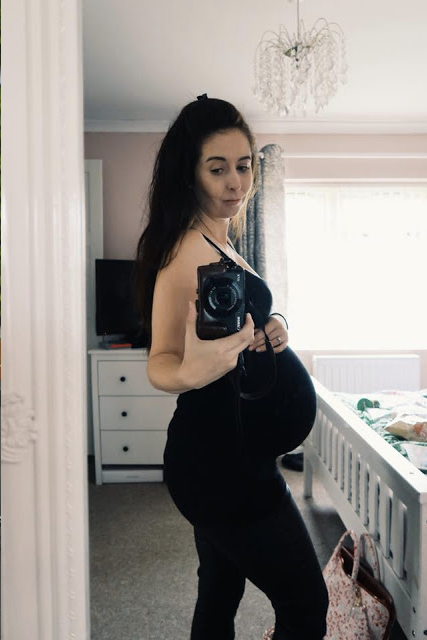Becoming a surrogate mother in the UK: ‘You’re not giving them away, you’re giving them back’

Thanks to shows like The Handmaid’s Tale and sensational tabloid headlines, surrogacy often gets a bad rap. But there is a far more positive side to the story: one of friendship, community and the joy of helping to create a much longed-for family.
Sarah Jones, Chair of Surrogacy UK, is a four-time surrogate, who first discovered surrogacy 20 years ago when she investigated becoming an egg donor.
“Back then egg donors had to be anonymous,” said Sarah. “I didn’t like the thought of not knowing anything so I put it on hold. When I came back a few years later and googled egg donor, surrogacy came up and I considered it the same thing.”
Jenna Newell, a mum of two, became a surrogate recently for her cousin. Her own fertility issues led her to becoming a surrogate. “When I was younger, I was told I'd be lucky if I could conceive naturally, so I always said if I was able to, then I would want to do surrogacy”
But what is it like being a surrogate? Jenna and Sarah explain all...
Surrogacy is not just for nine months
Unlike other countries, where surrogacy is a transactional process, here in the UK the law doesn’t allow for money, apart from expenses, to pass hands. This means that the whole process becomes much more about friendship. Most surrogates keep in touch with the IPs (intended parents) and the babies they produce.
“We want a lifelong relationship,” says Sarah, who keeps in touch with all four of her surrogate babies and their parents. “We want to not live in each other's pockets, but we do want to meet up every so often.”
There are more surrogates out there than you realise!
Speaking to Kate Thornton on the latest episode of White Wine Question Time, transgender power couple Jake and Hannah Graf explained how they have started on the journey, but that it is difficult to find a surrogate.

“The legislation is very much geared towards protecting the surrogate and to prevent it from becoming an industry as it has become in many other countries, which is a good thing,” Jake explained to Kate on the podcast.
“But by the same token, that makes it really, really hard for people like Hannah and I to find someone.”
Sarah believes that there is a surrogate out there for every IP. “There’s at least 150 surrogates active on Surrogacy UK at the moment - and that’s just one organisation,” she explains. “There isn't a shortage of surrogates in the UK. You just have to wait a little bit longer, because it's based on friendship.”
So what advice could Sarah give Hannah and Jake on their search for a surrogate? “The community really is the best resource,” she says. “Surrogates talk to other surrogates, so you might not meet your surrogate, but you might find another one.”
Jenna also recommends spreading the word independently via friends, family and the many Facebook groups that are out there. “Don’t rush into it,” she says. “Chat to different people and get to know them first.”
Trust is so important
Surrogacy is not just about producing a cute baby at the end; it’s also about creating a respectful relationship between the surrogate and the future parents. “It's usually based on trust and friendships because obviously of how the law is structured – and it works better that way,” explains Sarah.
Jenna agrees that honesty is so important in the surrogacy journey. “I wouldn’t want people who pretend that they’re pregnant and don’t mention the surrogacy,” says Jenna, who says that trust and respect are also key.
“I didn’t want to be on the labour ward,” she says. “I went to a midwife-led unit. It’s important to trust me as well.”
READ MORE
Transgender couple call our UK surrogacy law
A guide to surrogacy in the UK
61-year-old serves as surrogate for son and husband
Surrogates are kindred spirits
As the law forbids payment in the UK, surrogates here are doing it for purely altruistic reasons – and this is something that definitely binds them for life.
Surrogacy UK has a really big community of surrogates who stick around long after they’ve retired. “We have surrogate-only breaks and get togethers – we call each other Surro Sisters,” explains Sarah. “We’re kindred spirits and we don’t have to explain why we do it – that understanding bonds you together”
Jenna agrees that it’s a great community and a small world. “When you’re a surrogate you discover that other surrogates live in the same area as you. One surrogate I met lives just 20 minutes down the road from me – it’s a whole new world.”
The law still needs some improvement
While it’s great that payment is illegal in the UK, there is still some way to go to improve the experience of surrogacy in this country. For example, the birth mother (and father, if they’re married) still have to register the birth.
“One of your official duties as a parent, is that you go and register your baby and that's taken off the intended parents,” says Sarah. “It should be them doing it. It's something you have to do, but you wish you didn't have to do it.”
There are new laws however that have been proposed that if passed means the IPs can register the birth. “The Law Commission looked at it (the current law) and everybody said it’s not the surrogate’s role to do that”, explains Sarah.
When it comes to after the birth, some hospitals will not allow the surrogate and new parents to leave separately and can actually call social services as it’s seen as abduction.
Jenna says she was really lucky to have a forward-thinking unit to give birth in. “We had a private room each…” says Jenna. “I asked them to make up a hospital band for my cousin for their memory box and they went one step further and made up a special band with my cousin’s name matched to the baby’s name. They also discharged them separately from us.”
There will always be those that judge
Unfortunately, both Sarah and Jenna experienced negativity from people when they found out they were surrogates.
“I’ve had comments,” said Jenna. “How much are you making from it? Where’s your red cloak? I could never give away my baby!”
As Sarah says to anyone who questions how they could give away the baby after carrying it for nine months: “You’re not giving them away, you’re giving them back to their parents”
Jenna’s cousin also experienced barbed comments as an intended parent about how surrogacy would save her figure. “She was like hold on, it’s not a case of saving my figure,” explains Jenna “She’d have loved nothing more than to carry her own child.”

But the end result is worth it!
The best bit about being a surrogate for Jenna was the moment that the baby was born and her cousin burst into tears.
“Seeing their faces when she was born… was very emotional,” she said. “Just seeing them have that family that they so wanted was amazing!”
As intended parent Hannah Graf told Kate Thornton on White Wine Question Time “I'm really hopeful that that person is out there. I hope we connect with them and I hope the stars align… I think anyone who's willing to be a surrogate by definition is an incredible person.”
If you’re looking to be a surrogate or an Intended parent, visit Surrogacy UK or COTS Surrogacy for more information.
Hear from one couple, Jake and Hannah Graf, who are pinning their pregnancy hopes on surrogacy in the latest episode of White Wine Question Time.


